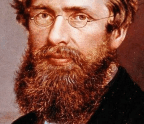




In 1943 the fortunes of war began to turn against Nazi Germany. Early that year, the battle of Stalingrad – widely hailed as a turning point in the Second World War – inaugurated a long, steady advance by the Red Army on the eastern front. This was interrupted only briefly by the battle of Kursk, the largest tank battle in history, which the Germans lost comprehensively.
In the south, Hitler’s Italian ally, Mussolini, was deposed in July 1943 after Allied forces landed in Sicily. The Germans now felt obliged to occupy mainland Italy, diverting much-needed troops from the east, but were steadily beaten back by the Allies from September onwards. The end of July saw the mass bombing of Hamburg, with the damage inflicted on German cities by Allied raids becoming ever more severe.
All the while, morale on the home front began to fall, and the Nazi Party, the Gestapo and the SS started to tighten the screws of the repression that had played such an important part in creating the regime in the first place. Active Nazis rejoiced in the return, as they saw it, of the “time of struggle”, the old days before the Third Reich was securely established, when they were fighting against their enemies, real or imagined, on all sides.
By 1944 growing numbers of middle-ranking army officers, backed by a few more senior figures, had become so despairing of victory that they were plotting to remove Hitler and sue for peace – a futile enterprise, since the Allies had agreed to demand





